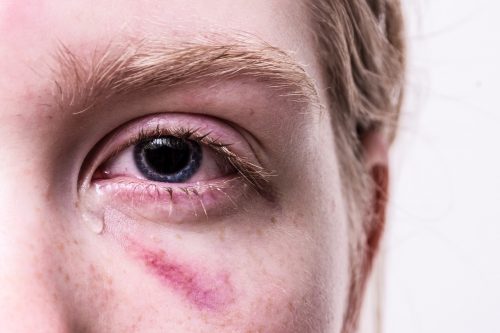Trauma is the result of stressful experiences such as prolonged abuse, violence, road accidents, serious illnesses, and natural disasters. The experience can leave a long-lasting effect on your body by increasing its defenses and creating a defense response when you face a similar situation. According to Kathleen Smith, PhD, LPC, “Sometimes they will experience memories or “flashbacks” of the event, or they may have nightmares about it that feel very real.” It pushes your body into a fight-or-flight condition that causes an increase in blood pressure and heart rate and loss of appetite. The psychology of trauma is a delicate topic that leads to mental health problems such as depression and post-traumatic stress disorders.

Source: pixabay.com
One of the most productive means of mitigating the symptoms and effects of such experiences is through the help of a counselor. There are specialists known as trauma counselors who help people with such a condition. They provide means to help an individual address, come to terms with, and face their past experiences from these traumatic events. Each of their treatment plans is different and may take months or longer to help a patient fully.
However, becoming a trauma counselor is no easy feat. Those who take up a degree in psychology or sociology can end up as a trauma counselor. They’re required to go to a graduate school under a program that is concerned with trauma or psychology. Also, upon graduation, a license is necessary for them to pursue this job. Experience is one of the hardest things for them to gain since they don’t get too much exposure from their internship. Also, they require skills such as patience, control over emotions, and keen attention to detail in dealing with their patients.
Why See A Counselor?
“People with PTSD should seek out treatment with a mental health professional — such as a psychologist or therapist — who has specific experience and background in the treatment of post-traumatic stress disorder,” according to John M. Grohol, Psy.D. When the trauma is too much to handle to the point that you compromise your daily activities, seeking professional help may be necessary. Seeing a trauma counselor has many benefits. Here are three reasons why.

Source: pixabay.com
- Experience And Training
They underwent training in dealing with people from a broad spectrum of traumatic experiences. It may be something frequent, such as prolonged abuse, or something not many experience, like war and traumatic accidents. Given the experience and training they had for dealing with such cases, they can provide the most appropriate treatment plans to help an individual recover at the pace they need to.
- The Person Who Listens To You
Not all of us have a person to talk to; if ever you do, there are times that you prefer to keep these stories to yourself. If you fear judgment or feel uncomfortable sharing such experiences to anyone, this may serve as your best outlet. Sometimes it is necessary to talk to someone to release the pent up feelings you’ve had. Keeping everything within may cause you to explode someday. Through them, you can remain confidential and lose that fear of judgment.
- Treatment Plans
Trauma counselors design the most appropriate and effective treatment plans for their patients. After hearing what their patient is going through, they set up a scheme that best tackles both the root cause of the experiences and means to deal with it if ever the symptoms start to show once again. These treatments help you improve and deal with your symptoms and restore your self-esteem.
Having Difficulties Seeing One?
If you’re having difficulties in getting an appointment for a trauma counselor or don’t think that your condition is severe, you may consider self-treatment. However, this is a complicated procedure that requires the utmost patience. Here are step-by-step plans you can take.

Source: pixabay.com
- Break free from your sense of hopelessness. Sometimes, when you get the desire to depend on something like drugs or alcohol, you should learn to stop it. By depending on these substances, you may only be contributing to worsening your condition. It is necessary that you have self-control on the things you want to do.
- After getting over your dependence on such substances, try to start depending on yourself. Sometimes all you need is a pastime or activity which can help get your mind over such worries. “If you’re currently working with a mental health provider, it may also be important to let him or her know that you’re interested in starting an exercise program,” states Matthew Tull, PhD. Try new activities such as sports, writing, or exercise. These can serve as an outlet for all your fears.
- You can then seek someone to talk to if ever you have enough courage and trust to share your experiences with them. Who knows? Maybe they are going through the same situation. They may also offer useful advice that can help improve your condition. Don’t limit this to your friends; try joining support groups or volunteering.
These may serve as a temporary means in dealing with your condition. Should things get worse or hard to handle, it is best to seek professional help.
